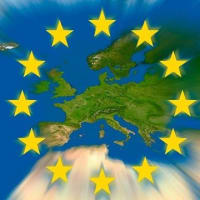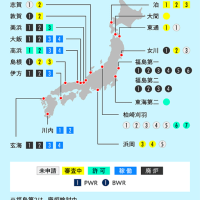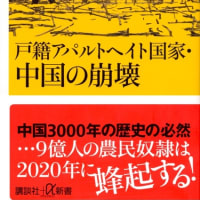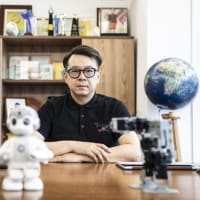2016-03-14 11:30:09
MONDAY, MAR 14, 2016 05:30 AM JST
Noam Chomsky: “I have never seen such lunatics in the political system''
SIMONE CHUN, ALTERNET
Share 69WhatsApp 36
Noam Chomsky: "I have never seen such lunatics in the political system"

(Credit: Associated Press)
This article originally appeared on AlterNet.
AlterNet Professor Chomsky was interviewed in Boston by the writer and activist Simone Chun for the Hankyoreh newspaper. Here is the English translation of the interview, courtesy of Ms. Chun. She was accompanied in her first meeting with Prof. Chomsky in November 2015 (pictured) by Christine Ahn, the founder of Women Cross DMZ, which led a historic march across the North-South Korean border last May (full disclosure, Ms. Chun, Ms. Ahn and myself are all affiliated with the Korea Peace Institute).
Ms. Chun’s interview recently took place, at Professor Chomsky’s office at MIT. Here is the Q&A.
政治制度の狂った人間
Noam Chomsky: “I have never seen such lunatics in the political system”
SIMONE CHUN, ALTERNET
Share 69WhatsApp 36
Noam Chomsky: "I have never seen such lunatics in the political system"
(Credit: Associated Press)
This article originally appeared on AlterNet.
AlterNet Professor Chomsky was interviewed in Boston by the writer and activist Simone Chun for the Hankyoreh newspaper. Here is the English translation of the interview, courtesy of Ms. Chun. She was accompanied in her first meeting with Prof. Chomsky in November 2015 (pictured) by Christine Ahn, the founder of Women Cross DMZ, which led a historic march across the North-South Korean border last May (full disclosure, Ms. Chun, Ms. Ahn and myself are all affiliated with the Korea Peace Institute).
Ms. Chun’s interview recently took place, at Professor Chomsky’s office at MIT. Here is the Q&A.
Chun: Do you feel that there will be any significant change in the foreign policy of the United States after President Obama?
Chomsky: If Republicans are elected, there could be major changes that will be awful. I have never seen such lunatics in the political system. For instance, Ted Cruz’s response to terrorism is to carpet-bomb everyone.
Chun: Would you expect that Hillary Clinton’s foreign policy would be different from President Obama’s?
Chomsky: Judging by the record, she is kind of hawkish―much more militant than the centrist democrats, including Obama. Take for instance Libya: she was the one pressing the hardest for bombing, and look at what happened. They not only destroyed the country, but Libya has become the center for jihad all over Africa and the Middle East. It’s a total disaster in every respect, but it does not matter. Look at the so-called global war on terror. It started in 15 years ago with a small cell in a tribal sector in Afghanistan. Now it is all over, and you can understand why. It’s about comparative advantage of force.
Chun: How about Bernie Sanders–what do you think his foreign policy will be?
Chomsky: He is doing a lot better than I expected, but he doesn’t have much to say about foreign policy. He is a kind of New Deal Democrat and focuses primarily on domestic issues.
Chun: Some people in South Korea speculate that if Bernie Sanders gets elected, he may take a non-interventionist position towards foreign policy, which would then give more power to South Korea’s right-wing government.
Chomsky: The dynamics could be different. His emphasis on domestic policy might require an aggressive foreign policy. In order to shore up support for domestic policies, he may be forced to attack somebody weak.
Chun: Do you believe that Americans would support another war?
Chomsky: The public is easily amenable to lies: the more lies there are, the greater the support for war. For instance, when the public was told that Saddam Hussein would attack the U.S., this increased support for the war.
Chun: Do you mean that the media fuels lies?
Chomsky: The media is uncritical, and their so-called the concept of objectivity translates into keeping everything within the Beltway. However, Iraq was quite different. Here, there were flat-out lies, and they sort of knew it. They were desperately trying to make connections between Saddam Hussein and 9/11.
Chun: Do you think that the Iran nuclear deal is a good thing?
Chomsky: I don’t think that any deal was needed: Iran was not a threat. Even if Iran were a threat, there was a very easy way to handle it–by establishing a Middle East Nuclear Weapons Free Zone, which is something that nearly everyone in the world wants. Iran has been calling for it for years, and the Arab countries support it. Everyone except the United States and Israel support it. The U.S. won’t allow it because it means inspecting Israel’s nuclear weapons. The U.S. has continued to block it, and in fact blocked it again just a couple of days ago; it just wasn’t widely reported. Iran’s nuclear program, as U.S. intelligence points out, is deterrent, and the bottom line is that the U.S. and Israel don’t want Iran to have a deterrent. In any case, it is better to have some deal than no deal, but it’s interesting that Obama picked the day of implementing of Iran deal to impose new sanctions on North Korea.
Chun: Do you feel that there will be any significant change in the foreign policy of the United States after President Obama?
Chomsky: If Republicans are elected, there could be major changes that will be awful. I have never seen such lunatics in the political system. For instance, Ted Cruz’s response to terrorism is to carpet-bomb everyone.
Chun: Would you expect that Hillary Clinton’s foreign policy would be different from President Obama’s?
Chomsky: Judging by the record, she is kind of hawkish―much more militant than the centrist democrats, including Obama. Take for instance Libya: she was the one pressing the hardest for bombing, and look at what happened. They not only destroyed the country, but Libya has become the center for jihad all over Africa and the Middle East. It’s a total disaster in every respect, but it does not matter. Look at the so-called global war on terror. It started in 15 years ago with a small cell in a tribal sector in Afghanistan. Now it is all over, and you can understand why. It’s about comparative advantage of force.
Chun: How about Bernie Sanders–what do you think his foreign policy will be?
Chomsky: He is doing a lot better than I expected, but he doesn’t have much to say about foreign policy. He is a kind of New Deal Democrat and focuses primarily on domestic issues.
Chun: Some people in South Korea speculate that if Bernie Sanders gets elected, he may take a non-interventionist position towards foreign policy, which would then give more power to South Korea’s right-wing government.
Chomsky: The dynamics could be different. His emphasis on domestic policy might require an aggressive foreign policy. In order to shore up support for domestic policies, he may be forced to attack somebody weak.
Chun: Do you believe that Americans would support another war?
Chomsky: The public is easily amenable to lies: the more lies there are, the greater the support for war. For instance, when the public was told that Saddam Hussein would attack the U.S., this increased support for the war.
Chun: Do you mean that the media fuels lies?
Chomsky: The media is uncritical, and their so-called the concept of objectivity translates into keeping everything within the Beltway. However, Iraq was quite different. Here, there were flat-out lies, and they sort of knew it. They were desperately trying to make connections between Saddam Hussein and 9/11.
Chun: Do you think that the Iran nuclear deal is a good thing?
Chomsky: I don’t think that any deal was needed: Iran was not a threat. Even if Iran were a threat, there was a very easy way to handle it–by establishing a Middle East Nuclear Weapons Free Zone, which is something that nearly everyone in the world wants. Iran has been calling for it for years, and the Arab countries support it. Everyone except the United States and Israel support it. The U.S. won’t allow it because it means inspecting Israel’s nuclear weapons. The U.S. has continued to block it, and in fact blocked it again just a couple of days ago; it just wasn’t widely reported. Iran’s nuclear program, as U.S. intelligence points out, is deterrent, and the bottom line is that the U.S. and Israel don’t want Iran to have a deterrent. In any case, it is better to have some deal than no deal, but it’s interesting that Obama picked the day of implementing of Iran deal to impose new sanctions on North Korea.
ノーム・チョムスキー - Wikipedia
https://ja.m.wikipedia.org › wiki › ノーム...
スマホ対応 - エイヴラム・ノーム・チョムスキー(Avram Noam Chomsky、1928年12月7日 - )は、 アメリカ合衆国の哲学者、言語哲学者、言語 ...
来歴 • 人物 • 主な受賞歴 • 邦訳著書
ノーム・チョムスキー
哲学者
エイヴラム・ノーム・チョムスキーは、アメリカ合衆国の哲学者、言語哲学者、言語学者、社会哲学者、論理学者。 彼は50年以上在籍するマサチューセッツ工科大学の言語学および言語哲学の研究所教授 兼名誉教授である。言語学者・教育学者キャロル・チョムスキーは彼の妻である。 ウィキペディア
MONDAY, MAR 14, 2016 05:30 AM JST
Noam Chomsky: “I have never seen such lunatics in the political system''
SIMONE CHUN, ALTERNET
Share 69WhatsApp 36
Noam Chomsky: "I have never seen such lunatics in the political system"

(Credit: Associated Press)
This article originally appeared on AlterNet.
AlterNet Professor Chomsky was interviewed in Boston by the writer and activist Simone Chun for the Hankyoreh newspaper. Here is the English translation of the interview, courtesy of Ms. Chun. She was accompanied in her first meeting with Prof. Chomsky in November 2015 (pictured) by Christine Ahn, the founder of Women Cross DMZ, which led a historic march across the North-South Korean border last May (full disclosure, Ms. Chun, Ms. Ahn and myself are all affiliated with the Korea Peace Institute).
Ms. Chun’s interview recently took place, at Professor Chomsky’s office at MIT. Here is the Q&A.
政治制度の狂った人間
Noam Chomsky: “I have never seen such lunatics in the political system”
SIMONE CHUN, ALTERNET
Share 69WhatsApp 36
Noam Chomsky: "I have never seen such lunatics in the political system"
(Credit: Associated Press)
This article originally appeared on AlterNet.
AlterNet Professor Chomsky was interviewed in Boston by the writer and activist Simone Chun for the Hankyoreh newspaper. Here is the English translation of the interview, courtesy of Ms. Chun. She was accompanied in her first meeting with Prof. Chomsky in November 2015 (pictured) by Christine Ahn, the founder of Women Cross DMZ, which led a historic march across the North-South Korean border last May (full disclosure, Ms. Chun, Ms. Ahn and myself are all affiliated with the Korea Peace Institute).
Ms. Chun’s interview recently took place, at Professor Chomsky’s office at MIT. Here is the Q&A.
Chun: Do you feel that there will be any significant change in the foreign policy of the United States after President Obama?
Chomsky: If Republicans are elected, there could be major changes that will be awful. I have never seen such lunatics in the political system. For instance, Ted Cruz’s response to terrorism is to carpet-bomb everyone.
Chun: Would you expect that Hillary Clinton’s foreign policy would be different from President Obama’s?
Chomsky: Judging by the record, she is kind of hawkish―much more militant than the centrist democrats, including Obama. Take for instance Libya: she was the one pressing the hardest for bombing, and look at what happened. They not only destroyed the country, but Libya has become the center for jihad all over Africa and the Middle East. It’s a total disaster in every respect, but it does not matter. Look at the so-called global war on terror. It started in 15 years ago with a small cell in a tribal sector in Afghanistan. Now it is all over, and you can understand why. It’s about comparative advantage of force.
Chun: How about Bernie Sanders–what do you think his foreign policy will be?
Chomsky: He is doing a lot better than I expected, but he doesn’t have much to say about foreign policy. He is a kind of New Deal Democrat and focuses primarily on domestic issues.
Chun: Some people in South Korea speculate that if Bernie Sanders gets elected, he may take a non-interventionist position towards foreign policy, which would then give more power to South Korea’s right-wing government.
Chomsky: The dynamics could be different. His emphasis on domestic policy might require an aggressive foreign policy. In order to shore up support for domestic policies, he may be forced to attack somebody weak.
Chun: Do you believe that Americans would support another war?
Chomsky: The public is easily amenable to lies: the more lies there are, the greater the support for war. For instance, when the public was told that Saddam Hussein would attack the U.S., this increased support for the war.
Chun: Do you mean that the media fuels lies?
Chomsky: The media is uncritical, and their so-called the concept of objectivity translates into keeping everything within the Beltway. However, Iraq was quite different. Here, there were flat-out lies, and they sort of knew it. They were desperately trying to make connections between Saddam Hussein and 9/11.
Chun: Do you think that the Iran nuclear deal is a good thing?
Chomsky: I don’t think that any deal was needed: Iran was not a threat. Even if Iran were a threat, there was a very easy way to handle it–by establishing a Middle East Nuclear Weapons Free Zone, which is something that nearly everyone in the world wants. Iran has been calling for it for years, and the Arab countries support it. Everyone except the United States and Israel support it. The U.S. won’t allow it because it means inspecting Israel’s nuclear weapons. The U.S. has continued to block it, and in fact blocked it again just a couple of days ago; it just wasn’t widely reported. Iran’s nuclear program, as U.S. intelligence points out, is deterrent, and the bottom line is that the U.S. and Israel don’t want Iran to have a deterrent. In any case, it is better to have some deal than no deal, but it’s interesting that Obama picked the day of implementing of Iran deal to impose new sanctions on North Korea.
Chun: Do you feel that there will be any significant change in the foreign policy of the United States after President Obama?
Chomsky: If Republicans are elected, there could be major changes that will be awful. I have never seen such lunatics in the political system. For instance, Ted Cruz’s response to terrorism is to carpet-bomb everyone.
Chun: Would you expect that Hillary Clinton’s foreign policy would be different from President Obama’s?
Chomsky: Judging by the record, she is kind of hawkish―much more militant than the centrist democrats, including Obama. Take for instance Libya: she was the one pressing the hardest for bombing, and look at what happened. They not only destroyed the country, but Libya has become the center for jihad all over Africa and the Middle East. It’s a total disaster in every respect, but it does not matter. Look at the so-called global war on terror. It started in 15 years ago with a small cell in a tribal sector in Afghanistan. Now it is all over, and you can understand why. It’s about comparative advantage of force.
Chun: How about Bernie Sanders–what do you think his foreign policy will be?
Chomsky: He is doing a lot better than I expected, but he doesn’t have much to say about foreign policy. He is a kind of New Deal Democrat and focuses primarily on domestic issues.
Chun: Some people in South Korea speculate that if Bernie Sanders gets elected, he may take a non-interventionist position towards foreign policy, which would then give more power to South Korea’s right-wing government.
Chomsky: The dynamics could be different. His emphasis on domestic policy might require an aggressive foreign policy. In order to shore up support for domestic policies, he may be forced to attack somebody weak.
Chun: Do you believe that Americans would support another war?
Chomsky: The public is easily amenable to lies: the more lies there are, the greater the support for war. For instance, when the public was told that Saddam Hussein would attack the U.S., this increased support for the war.
Chun: Do you mean that the media fuels lies?
Chomsky: The media is uncritical, and their so-called the concept of objectivity translates into keeping everything within the Beltway. However, Iraq was quite different. Here, there were flat-out lies, and they sort of knew it. They were desperately trying to make connections between Saddam Hussein and 9/11.
Chun: Do you think that the Iran nuclear deal is a good thing?
Chomsky: I don’t think that any deal was needed: Iran was not a threat. Even if Iran were a threat, there was a very easy way to handle it–by establishing a Middle East Nuclear Weapons Free Zone, which is something that nearly everyone in the world wants. Iran has been calling for it for years, and the Arab countries support it. Everyone except the United States and Israel support it. The U.S. won’t allow it because it means inspecting Israel’s nuclear weapons. The U.S. has continued to block it, and in fact blocked it again just a couple of days ago; it just wasn’t widely reported. Iran’s nuclear program, as U.S. intelligence points out, is deterrent, and the bottom line is that the U.S. and Israel don’t want Iran to have a deterrent. In any case, it is better to have some deal than no deal, but it’s interesting that Obama picked the day of implementing of Iran deal to impose new sanctions on North Korea.
ノーム・チョムスキー - Wikipedia
https://ja.m.wikipedia.org › wiki › ノーム...
スマホ対応 - エイヴラム・ノーム・チョムスキー(Avram Noam Chomsky、1928年12月7日 - )は、 アメリカ合衆国の哲学者、言語哲学者、言語 ...
来歴 • 人物 • 主な受賞歴 • 邦訳著書
ノーム・チョムスキー
哲学者
エイヴラム・ノーム・チョムスキーは、アメリカ合衆国の哲学者、言語哲学者、言語学者、社会哲学者、論理学者。 彼は50年以上在籍するマサチューセッツ工科大学の言語学および言語哲学の研究所教授 兼名誉教授である。言語学者・教育学者キャロル・チョムスキーは彼の妻である。 ウィキペディア




















※コメント投稿者のブログIDはブログ作成者のみに通知されます